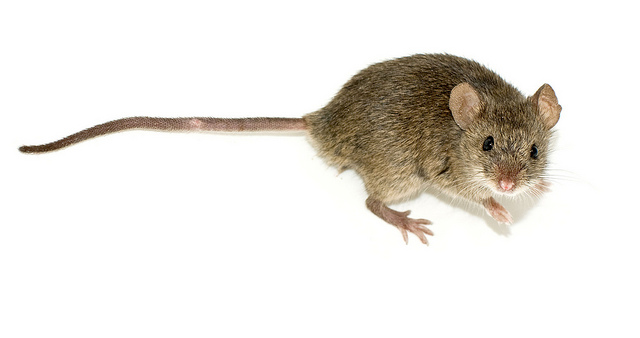Imagine that you could only smell food when you were hungry. Walk into a bakery after a full meal, and the tempting smells of chocolate, caramelised sugar and baking dough would be absent. Your nose would only turn those smells back on after your stomach emptied. It’d be great for your diet. Now imagine that for sex.
According to a paper in this month’s Cell, that’s basically how female mice determine when they should go looking for love. Instead of delicious pastry, the relevant odor comes from pheromones in male urine. And the switch that turns the nose on and off is the female sex hormone progesterone.
“In mice, the olfactory system really dictates social behaviour,” says study lead Lisa Stowers. About 5-to-10 per cent of the neurons in a female mouse’s vomeronasal organ, a region of olfactory tissue that specialises in sensing pheromones, are tuned to proteins that males release in their urine. The surface of these neurons have receptors for the urine proteins — docks that grab the proteins after a female inhales them. If a female is in estrus and fertile, those proteins turn on neural circuitry that make her go looking for the male. But those same smells are completely uninteresting to her when she is in the infertile part of her cycle.
Stowers’ team found that female mice are actually always ready to chase down males. But when females are not fertile and their progesterone levels are high, the hormone turns off their ability to detect the male scent. No smell, no interest. Surprisingly, the change doesn’t happen in the sex-specific parts of the brain. Instead, it occurs directly inside the female’s nose.
The same neurons that sense male urine proteins also have receptors for progesterone. When progesterone fills these receptors, it sets up changes inside the neuron that keep it from firing when male scent is around. The nose still detects the male pheromones, but as long as progesterone says “no go”, the nerve never tells the brain they’re there. And the system is specific to the nerves that sense male pheromones: the nerves that sense cat smells were completely unaffected by the hormone.
Says Stowers, “We thought the sensory system was just there to sense the external cues, pass that information on, and let the brain make the decision. Instead, the nose makes the really important decision of filtering out some sensory information. It’s acting like a little mini-brain.”
Picture: Duncan Hull via Flickr
